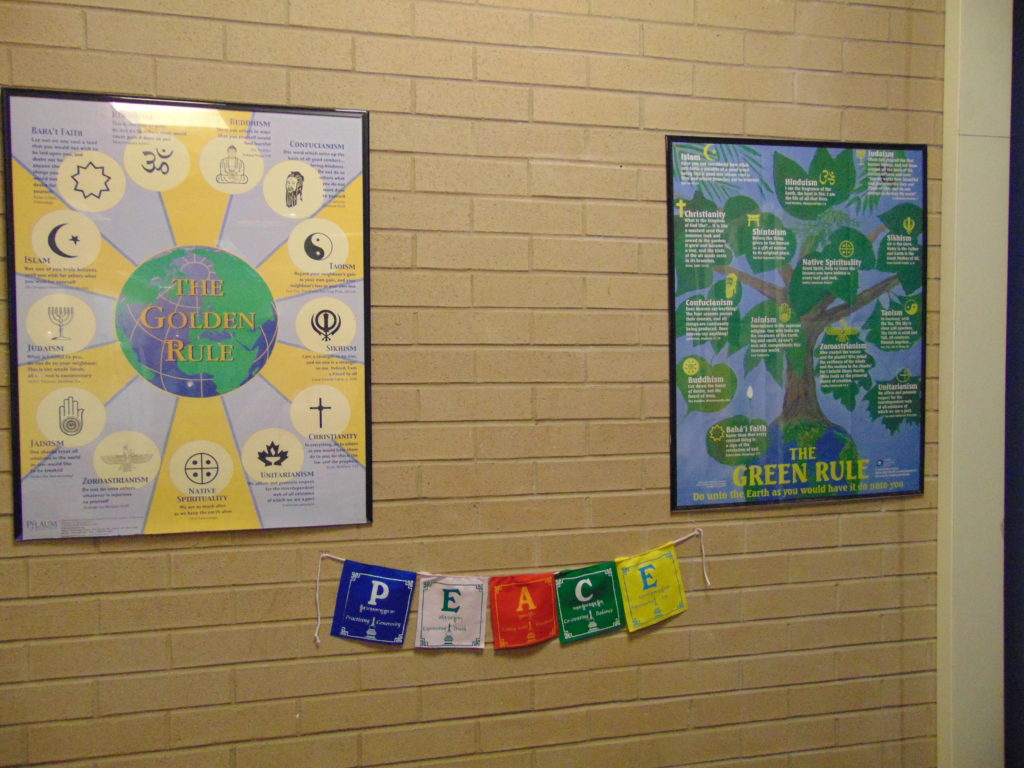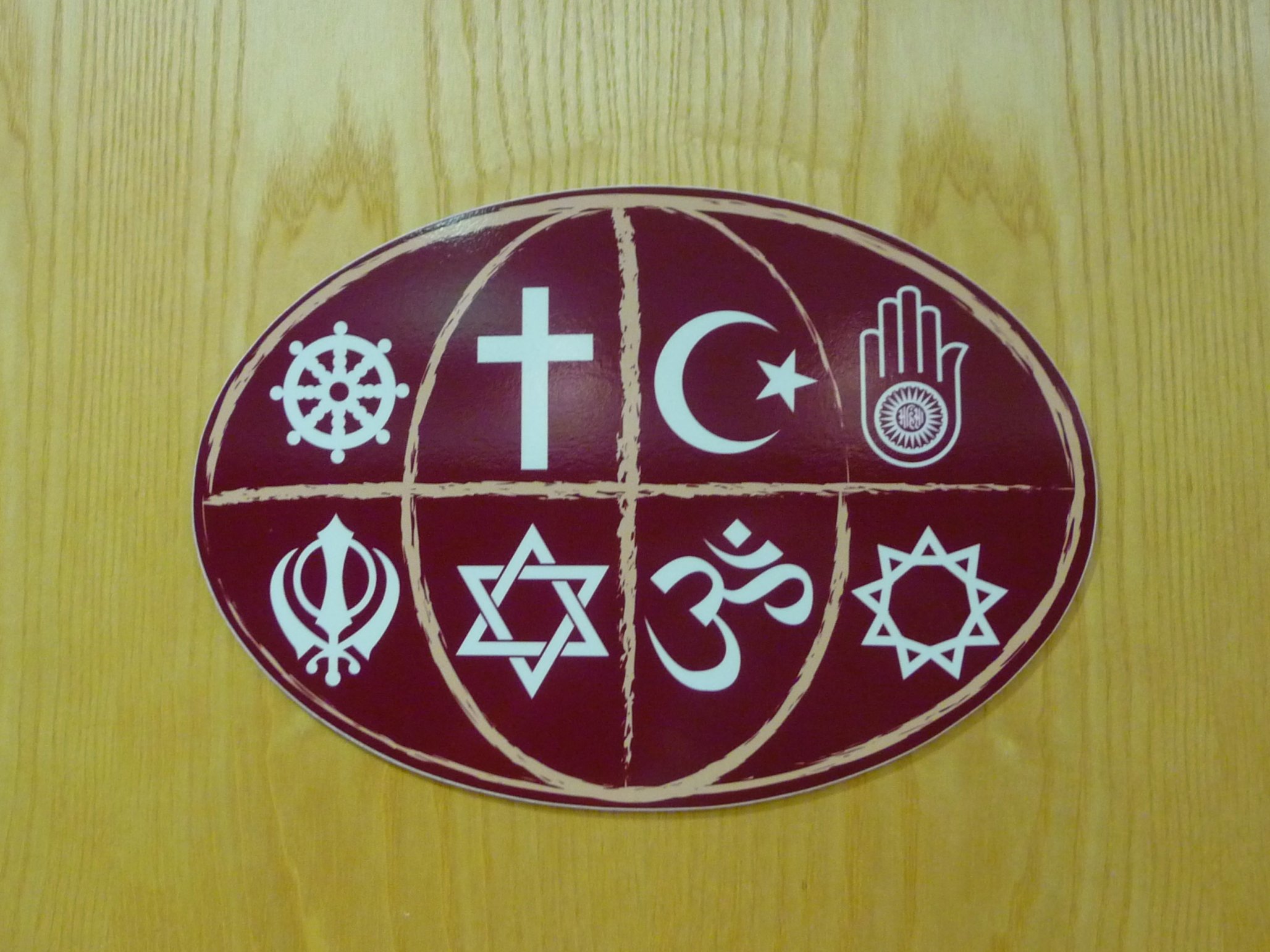Sinclair’s commitment to students goes beyond the academic, physical and social dimensions of personal growth. For over five decades the college has provided resources to supplement students’ needs on their spiritual, as well as academic, journeys through the office of Multifaith Campus Ministry.
Larry Lindstrom is the current head of the office and was hired in 2016. Shortly after his hiring, his job title became the Multifaith Campus Chaplain, reflecting the commitment to the inclusion of all faith traditions at Sinclair.
Campus ministry at Sinclair began in 1968 and focused on serving as a resource for students to learn more about religious and spiritual matters during their schooling. The office was originally staffed by two ministers, one Protestant and one Catholic.
In observance of the established legal separation of church and state, the office refrained from the practice of proselytizing (seeking to convert anyone to their religion). The office space was provided by the college, but funding for the positions would come from off-campus organizations.
“For many years, the Catholic campus minister’s position was funded by the Archdiocese of Cincinnati, and the Protestant campus minister’s position was funded by an independent association, known as Dayton Ministries in Higher Education (and now known as the Multifaith Campus Alliance),” Lindstrom said.
Throughout the 21st century, the campus ministry office has undergone significant change. Former campus minister Barbara Battin expanded the work of the office into an Interfaith project, fostering communication and cooperation among many different faith traditions, as a reflection of the college’s religious diversity.
“The department began in a time when the religious culture around campus was predominantly Christian,” Lindstrom said. “Now we are far more aware of the wide variety of spiritual communities, the office seeks to develop better communication among people of different traditions.”
Related Articles

Today the office offers the community an opportunity for spiritual growth through readily available information, pastoral care for people of any spiritual perspective and educational activities, such as panel discussions and maintaining programs that reflect the diversity of the college.
One such event on the horizon is the third annual Faith Fair on Wednesday, March 11, from 11 a.m.-1 p.m. in the library loggia, which Lindstrom anticipates to be the highlight of the semester. Representatives from several different faith communities will be available for conversation with students, faculty and staff.
“…last year our list of communities represented included Sikh, Pagan/Wicca, Baha’i, Christianity, and Islam,” Lindstrom said. “We hope for an even greater number of communities this year.”
Lindstrom hopes students will take advantage of the opportunity to explore their own spiritual development and can find him in Building 10, room 10-442.
He leaves students with this advice:
“Many of our students come to college with a spirituality that might be described as a box,” he said. “As children, they were simply given a box of traditions/beliefs/practices, and they took it without question. I hope, though, that the college experience can be a time for opening the box (perhaps for the first time).
“Feel free to examine the things that are in that box; some of them may have been very useful for your parents or grandparents, but no longer mean as much. Those things can be removed. At the same time, you may encounter new spiritual ideas and practices that you haven’t come across before. If some of those items work for you, I hope you’ll put those into the box. The ultimate goal is for you to leave school with a box that is truly yours.”
Henry Wolski
Staff Writer

